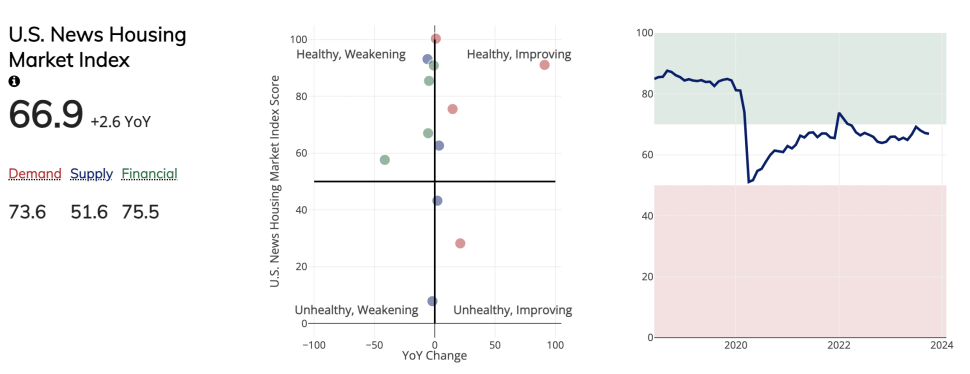Learn all information about contingent and what contingent means in real estate and its comparison with other factors or terminologies used in real estate
What is Contingent?
The word contingent means dependent on something else.
What does Contingent Mean in Real Estate
When it comes to real estate, the term “contingent” is used to describe a condition or requirement that must be met before a transaction can be completed. These contingencies are outlined in the purchase agreement between the buyer and seller, and they serve to protect the interests of both parties involved in the transaction. Understanding the meaning of contingent and how it is relevant in real estate is crucial to ensure a successful transaction. The failure to meet the contingencies could result in the transaction not being finalized.
Common Types of Contingents in Real Estate
Financing Contingency: This clause states that the sale of the property is dependent on the buyer obtaining a mortgage loan or financing within a specific period. If the buyer is unable to secure financing within the agreed timeframe, they may be able to back out of the purchase contract without incurring any penalties.
Appraisal Contingency: An appraisal contingency allows a buyer to withdraw from the purchase agreement if the property’s appraised value is lower than the agreed-upon buying price. This contingency prevents buyers from overpaying for a property.
Home Inspection Contingency: This provision permits the buyer to arrange for a professional home inspector to inspect the property. If the inspection reveals any major issues, the buyer may ask for repairs or negotiate a reduced purchase price based on the results. If the seller declines to address the problems or renegotiate the price, the buyer generally has the right to withdraw from the contract.
Sale Contingency: In certain situations, a buyer’s capability to acquire a property may depend on the sale of their current home. This kind of contingency enables the buyer to withdraw from the purchase agreement if they are incapable of selling their existing property within a specified timeframe.

Contingent Offer Meaning?
A contingent offer is an offer on a new home that has been accepted by the seller, but the sale is not finalized until certain conditions are met.
How Long Does a House Stay in Contingent Status
The length of the contingent period can vary between 30 to 60 days, depending on local market conditions, specific contingencies, and purchase agreement terms.
Here are some factors that may influence the duration of a house staying in contingent status:
Type of Contingencies: The duration of a house being in contingent status can be affected by the types of contingencies specified in the purchase agreement. If the buyer needs to sell their current home before completing the purchase, the contingent status may continue until the buyer successfully sells their property.
Market Conditions: In a hot seller’s market, where there is high demand for homes, a property may not remain in contingent status for a long time. This is because buyers are usually motivated to move quickly to satisfy contingencies and finalize the purchase. On the other hand, in a slower market, houses may stay in contingent status for a longer period, as buyers take more time to secure financing, conduct inspections, and complete other contingencies.
Negotiated Timeframes: During the purchase process, the buyer and the seller negotiate the timeframe for meeting contingencies. These timeframes can vary based on both parties’ preferences and needs. While some contingencies may have specific deadlines stated in the purchase agreement, others may be more flexible.
Seller’s Preferences: Different sellers have different preferences when it comes to the time frame for satisfying contingencies. Some sellers may choose to move forward with other potential buyers if contingencies are not met within a reasonable period, while others may be more tolerant and willing to wait.
What does Contingent mean in Beneficiary?
In beneficiary designation, “contingent” refers to the secondary recipient of assets or benefits if the primary beneficiary is unable to receive them.
What does Pending mean in Real Estate?
When a property listing in the real estate market is marked as “pending,” it means that the seller has accepted an offer, and the transaction is underway. However, certain contingencies, like inspections, financing, or appraisal, may need to be completed before the sale can be finalized. Once all the contingencies have been met, the property’s status moves from “pending” to “sold,” indicating that the sale has been completed.
Contingent vs Under Contract
| Contingent: When a seller accepts an offer, the property is considered “contingent.” However, the sale of the property is not yet final and depends on specific conditions being met. These conditions may include things like financing approval, home inspections, or appraisal. Until these contingencies are resolved, the property will remain in contingent status. | Under Contract: The term “under contract” is used when a property has received an accepted offer and a legally binding contract between the buyer and seller has been formed. Although some regions use “under contract” and “contingent” interchangeably, others may consider “under contract” as an indication that all contingencies have been satisfied, and the sale is moving towards closing. However, in some cases, a property may still be “under contract” while certain contingencies are being resolved. |
Contingent vs Pending
| Contingent: When a property is marked as “contingent,” it means that the seller has accepted an offer, but the sale depends on certain conditions being fulfilled. These conditions, also known as contingencies, may include factors like financing approval, home inspections, or property appraisal. Until all these contingencies are resolved, the property will remain in a contingent status. | Pending: “When a property has an accepted offer and all contingencies have been satisfied or waived, its status changes to “Pending”. This means that the sale is in progress and the property is no longer being advertised for sale. “Pending” status indicates that the transaction is moving forward towards closing and it’s just a matter of time before the sale is finalized.” |
Real Estate Forecast Next 5 Years
The housing market is expected to gradually recover as mortgage rates decline from their 2023 highs. However, even with this recovery, the hottest housing markets in 2028 may not be the same as those in early 2024. This information is based on data from several authoritative sources, including the U.S. News Housing Market Index. This interactive platform provides a data-driven overview of the housing market throughout the country.

Based on the Federal Reserve’s latest economic projections from December, it seems that economists do not expect inflation to consistently fall to 2.0% until 2026. This may result in short-term interest rates remaining high but gradually decreasing over the next two years. Nonetheless, inflation may still decrease steadily between now and then, which means mortgage rates will likely follow suit and decrease as well. However, for homeowners with mortgage rates below 6%, it would take a significant drop below that level to motivate them to sell.
5-year National Housing Market Predictions for 2024-2028
Below is a summary of the year-end 2023 and some predictions for the housing market between 2024 and 2028. While there is no longer a forecast for a recession, economic growth is expected to decline sharply from the robust rate of 4.8% in the third quarter of 2023. However, if the country enters a recession, these predictions will change accordingly.

Frequently Asked Questions
All high search-related questions are mostly asked by people about contingent in real estate.
Can I make an offer on a house that is contingent?
Yes! It is still possible to make an offer on a house that is contingent, but your offer would become a backup offer if the current contingent offer falls through.
Is it better to be contingent or pending?
A property should be marked as pending rather than contingent because pending status indicates that all contingencies have been met, and the sale is progressing toward closing.
How often do contingent offers fall through?
The likelihood of contingent offers falling through can vary depending on market conditions and specific circumstances. Issues such as financing, appraisal, or home inspection can cause contingent offers to fall through, but there is no exact figure.
Can a seller accept another offer while contingent?
In most cases, sellers can continue to show the property and accept backup offers while under contingent status. If the primary contingent offer falls through, the seller can move forward with the backup offer.
What are the disadvantages of a contingent contract?
Contingency contracts create uncertainty for both parties and potential closing delays if deadlines aren’t met.
How long are most contingent offers?
The duration of contingent offers can vary depending on negotiations, typically with specified timeframes for contingencies.
What happens if a buyer fails to meet the contingencies in a real estate transaction?
If a buyer fails to fulfill contingencies in a real estate transaction, potential outcomes may include renegotiation of the contract, termination, return of earnest money, and/or relisting the property by the seller.
Are there any other types of contingencies beyond those mentioned in the text that might be included in purchase agreements between buyers and sellers?
Yes, other types of contingencies may be included in purchase agreements between buyers and sellers. Some of these include title contingencies, which ensure that the seller has a clear title to the property, and zoning contingencies, which protect the buyer in case the property is not zoned for the intended use. Other contingencies may include ones related to environmental issues, such as the discovery of hazardous materials on the property, or ones related to the completion of repairs or renovations before the sale can be finalized. It is important to carefully review and understand all contingencies outlined in a purchase agreement to ensure a successful and fair transaction.
Old Topic: Top Tricks for Selling a Mobile Home New Topic: CRM Solutions for Commercial Brokers 2024




